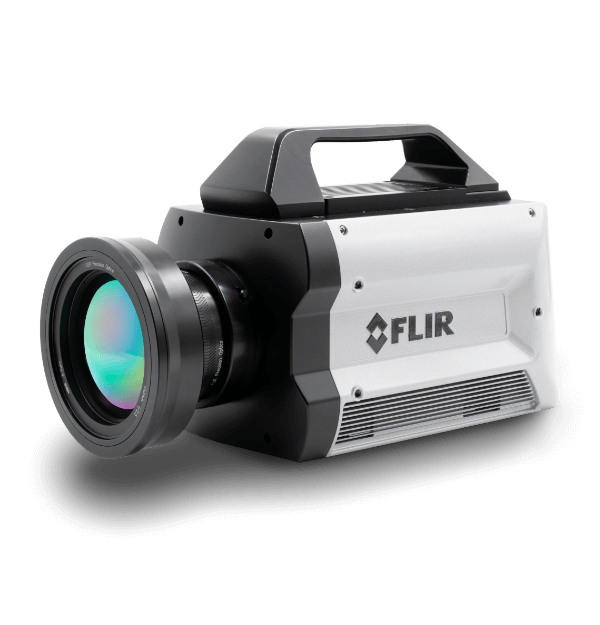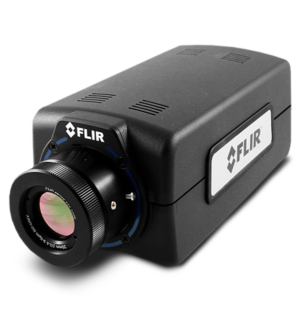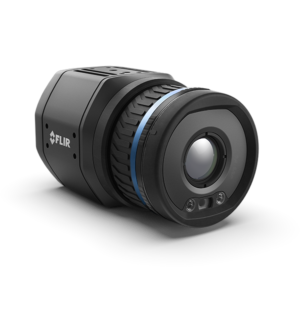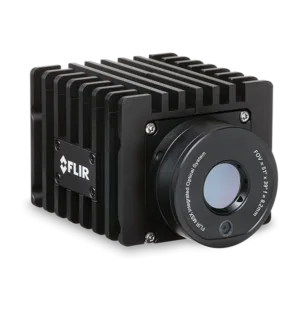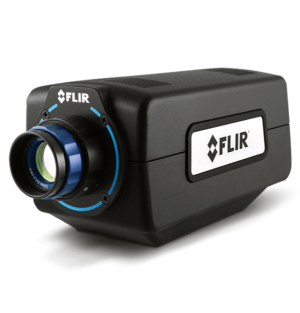The FLIR X6980-HS InSb is a high-speed, science-grade MWIR camera engineered for precise thermal imaging in demanding applications. Featuring a 640×512 InSb detector with a 1.5–5.0 µm spectral range, it delivers sharp 327,680-pixel images. With frame rates up to 1004 Hz and integration times as low as 270 ns, it captures fast-moving subjects and rapid thermal changes. Ideal for scientific research, defense, and aerospace, the camera includes a 4 TB SSD for extended recording, motorized lenses, and high-speed interfaces like 10 GigE, ensuring reliable, high-quality data capture.
Key Features
- High-Resolution Imaging: 640×512 InSb detector for detailed 327,680-pixel thermal images.
- Blazing-Fast Frame Rates: Programmable up to 1004 Hz for capturing rapid events.
- Ultra-Fast Integration: 270 ns to full frame for precise temperature measurements.
- Extended SSD Recording: 4 TB NVMe SSD records over 1.5 hours with zero dropped frames.
- High Thermal Sensitivity: ≤20 mK NETD for detecting subtle temperature variations.
- Motorized Lens Support: Compatible with 25 mm, 50 mm, and 100 mm motorized lenses.
- Advanced Filtering: 4-position motorized warm filter wheel for user-swappable filters.
- High-Speed Interfaces: Supports 10 GigE, CXP 2.1, and Camera Link for seamless data transfer.
- Precise Timing System: IRIG-B AM timestamping and synchronization for accurate recordings.
- Wide Temperature Range: Measures -20°C to 300°C, with optional ranges up to 3000°C.
Applications
The FLIR X6980-HS InSb excels in defense and aerospace applications. Its high-speed imaging and precise thermal sensitivity are ideal for analyzing missile guidance systems, capturing transient thermal events in real time. In aerospace, it supports non-destructive testing of composite materials, ensuring aircraft component integrity. The camera’s extended SSD recording and fast frame rates are perfect for evaluating propulsion systems and heat shields under extreme conditions. Its motorized lenses and high-speed interfaces enable real-time data analysis for mission-critical testing, enhancing reliability and performance in defense and aerospace research.

